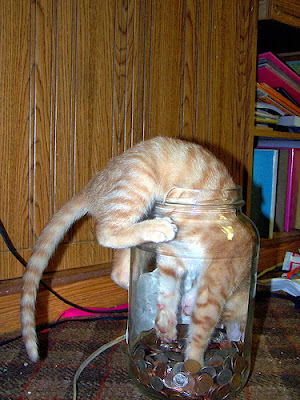It’s getting a tad silly.
 |
| Photo by DanielleKellogg via Flickr |
And it’s got sub-refrains, too: It takes a village (or a team) to write a novel. Editors nurture writers and help them make their books better. Only an egomaniac would dare to edit her own work. Traditional publishing offers a guarantee of quality, not only because of the gate and its keepers, but because of the editing. Self-published books are bad.
I sat in on a panel discussion about self-publishing on which one of the panelists actually said: I don’t read self-published books anymore because of the lack of editing.
Seriously.
Everywhere the mantra is that authors do not work alone. They need lots of other people to help them write their books: critique groups, beta readers, editors, agents, more editors, on and on.
Why do we accept this so readily?
We have let the monstrosity that is the publishing industry tell writers they are incapable of creating good books all by themselves. Writers are like children and must be nurtured. They are only moderately talented hacks who can come up with fairly good plots, but need the gatekeepers to edit their stories into shape.
And because for so very long publishing houses were the only way to go, we listened. We let them tell us what to change in our work. And we changed it.
We have come to a place in the writing world where writers are constantly fed this it-takes-a-village line and anyone who dares to speak up for the author as an independent artist is batted away as if he hasn’t a brain in his head.
I once heard an author tell a group of writers that her book went through her editor five times. Five times! My first thought was, why would you hand over such a sloppy manuscript to an editor? And my second thought was, what’s wrong with your editor? Five times?
So, the question is, who do you want to pay? An editor? Or yourself?
Well, the answer depends on you, doesn’t it? Many authors absolutely can and do edit their own work. Many who do so are too ashamed to admit it. I think it’s time we came out of the closet and stood up for authors everywhere. Why? Because creating a good story with a tight plot and wonderful characters with clean, virtually error free copy is your job as an author.
It’s part of the job description!
But can you do it?
- Do you consider yourself a grammar Nazi?
- Do you like grammar?
- Do you notice grammatical mistakes in other people’s writing…a lot?
- Do you know what the singular they is and does it make you want to scream?
- Do you find yourself always double-checking your usage of words, especially whom and lay?
- Do you often look up the definition of words you know…just to be sure?
- Do you find yourself irritated with the telling of a story and know just what you would do to fix it?
- Do you notice mistakes in books, such as important characters dropping out of the narrative never to return, plot holes, plot lines that never come to a conclusion or places and people changing names or appearance mid-novel?
- Do find yourself thinking about your writing and discovering errors in your mind, without even looking at the manuscript?
If you answered yes to at least six of those questions, then yes, you can edit your own work. Is it easy? Well, that depends on how well you know your grammar rules, when to break them, and how well read and versed you are in story structure.
But here’s the thing…
As I said before, clean copy and great structure is part of the job description. It’s your job. Learn it!
- Read.
- Read a lot.
- Read grammar blogs.
- Look up everything!
- Join a critique group.
- Hire an editor.
- Find a few beta readers.
- Take a class on grammar and/or writing.
- Read.
Some of the things on that list you will keep doing forever–namely, reading. Some of them you would do naturally, if you are a self-editor: reading, subscribing to grammar blogs, obsessively looking everything up.
But some of those things you will grow out of. Once you have learned the rules and how you want to break them–once you are writing full time and producing many stories and books–you can let some of your crutches fall. In fact, you can’t run until you do.
So, after you’ve learned, you stop trusting your critique group because you realize their opinions are just that: their opinions. And you no longer need a content editor to tell you how your story should be written. You know how it should be written: your way. And you certainly don’t need a copy editor to find your grammar mistakes–you can do that yourself!
Beta readers? Well that’s always an option isn’t it? You don’t write in a vacuum, after all. Some of us will want the opinion of someone we trust. But we don’t all do it that way. Not all of us will want another opinion before we publish.
That’s right! I said it! Some of us do not care about any opinion other than our own before we publish. We let our readers tell us if it worked or not. And the truth is, what you’ve written, if it’s well done, is going to resonate with someone somewhere.
DIY editing is easy, once you’ve learned the rules (and never fear, those you can’t keep straight are right at your fingertips on the Internet!) And it’s fun, too.
If you want to hire editors to help you write your story, do it. But if you don’t, join the club and stop hiding. There’s nothing wrong with doing your job well…and all by yourself.
